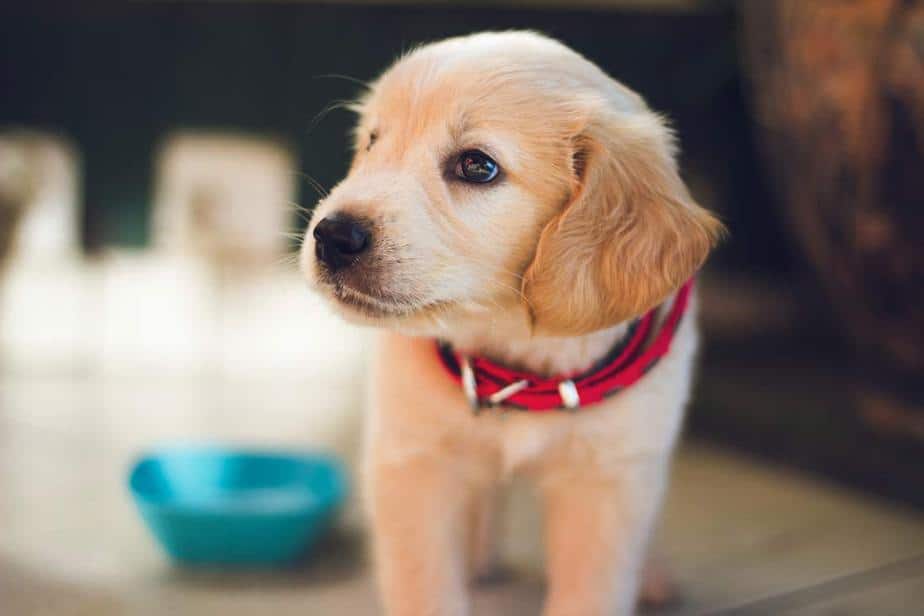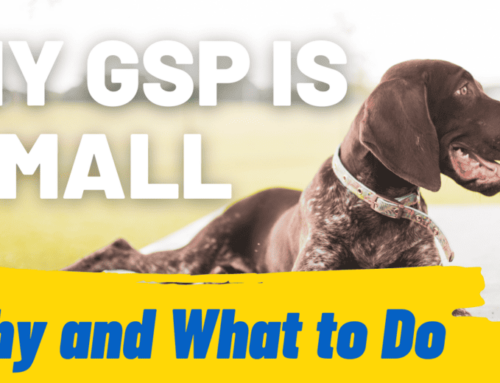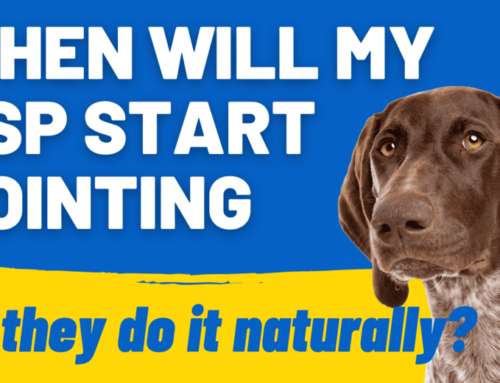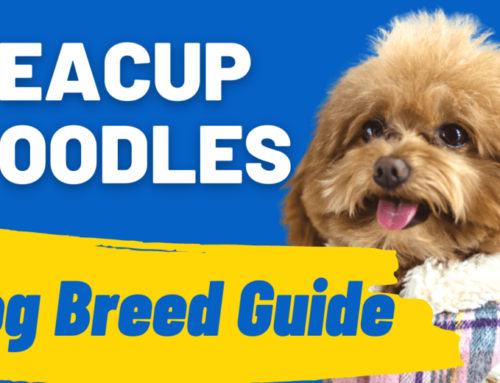Every owner of a Golden Retriever knows they love their food. So it can be worrying when your puppy isn’t eating like they should be.
There are many reasons why your puppy isn’t eating or has little appetite. We’ve created a list of causes and treatments so you can get your puppy back on the right track.
Does your Golden eat wet food but not kibble? If this is the case, then read our post: Puppy Won’t Eat Kibble? Do This!
How Much Are You Feeding Them?
Do you feed your Golden Retriever puppy two meals a day? If they’re over 6-months old then this is good, but if they’re under this age, consider feeding them smaller meals 3 or even 4 times a day.
Try giving them ½ a cup of their food three times day and see if this helps with their eating, as smaller meals are easier to digest.
Eating Routine
Be sure to keep their meals around the same time every day. Give them a quiet area that is out of the way where they won’t be disturbed while they eat.
If you’re crate training them, be sure to feed them their meals inside their crate during this time.
Feeding Chart for Golden Retriever Puppy
Use this as a guide for how much you should feed your Golden Retriever puppy.
| Age | Amount |
|---|---|
| Two months | 1 1/2 cups |
| Three months | 2 cups |
| Four months | 2 1/2 cups |
| Five to Six months | 3 cups (females stay on 3) |
| Six to Seven (males) | 3 1/2 to 4 cups |
Table courtesy of www.totallygoldens.com/golden-retriever-feeding-chart/
Causes and Treatments
Fussy
When you choose your Golden Retriever puppy’s food it’s an important decision. Puppies are quite happy to eat the same food day in, day out, so you want to make sure you’ve chosen a food that they like and one that’s also high in nutrients.
If your pup isn’t eating their food, the first question is, what else are they eating? If they’re getting human food and not eating their own then this should be stopped. How many treats are they getting, and if it’s too many, then is their appetite being spoiled?
If you’re training your puppy with treats, make sure you are using small kibble, so as not to overfeed them before mealtimes.
If your puppy is being fussy with their food, then try using this strategy:
- Set out your puppy’s food
- If they don’t eat it within 30-minutes, remove it
- Next meal, repeat the process
- If your puppy is looking around for other scraps, don’t give them treats or human food
- They will soon learn to accept their meal when it’s given to them
Have you made the right choice in food?
If you have chosen dry food, then try using some heated water over the kibble. This can increase the aroma and palatability.
Another option is to add a topper of wet food. You can try mixing in a small amount of wet food in with their kibble to improve the flavor.
We recommend a combination of 90% Blue Buffalo Life Protection Puppy, as it has a high level of fiber and has a well-balanced nutrition profile that is high in quality. And then add to this 10% of Merrick Grain-Free Puppy Plate, as a topper or mix-through, which is a low-allergy choice with quality ingredients.
If you’re changing your puppy’s diet over to this option, from something they are on currently, then you should do so slowly.
Here is a chart on the best method to changing their food:
| Day | Old Food | New Food |
|---|---|---|
| 1-2 | 90% | 10% |
| 3-4 | 80% | 20% |
| 5-6 | 70% | 30% |
| 7-8 | 60% | 40% |
| 9-10 | 50% | 50% |
| 11-12 | 40% | 60% |
| 12-14 | 30% | 70% |
| 15-16 | 20% | 80% |
| 17-18 | 10% | 90% |
| 19-20 | – | 100% |
Stress
Is your puppy new to your home? Or has something changed in the home recently such as a new pet? Or even a new person?
These are all factors that can affect your puppy’s stress levels, and this can present itself in many ways. One of these is through not eating their food.
If your puppy is new to their home, you should give them some time to settle in. Leaving their litter can be stressful and may take 1-2 weeks for them to adjust to their new environment.
Watch for these stress indicators:
- Reserved body language
- Showing whites of their eyes
- Hiding
- Tucked ears
- Tucked tail
- Lip-licking
- Yawning
- Panting
- Avoiding eye-contact
Crate training can help your puppy cope with stress. It will give them a place for safety and a sleeping area that’s all their own.
Give lots of comfort to your puppy though any transition, whether that’s being new to the home, or having a change of home dynamic.
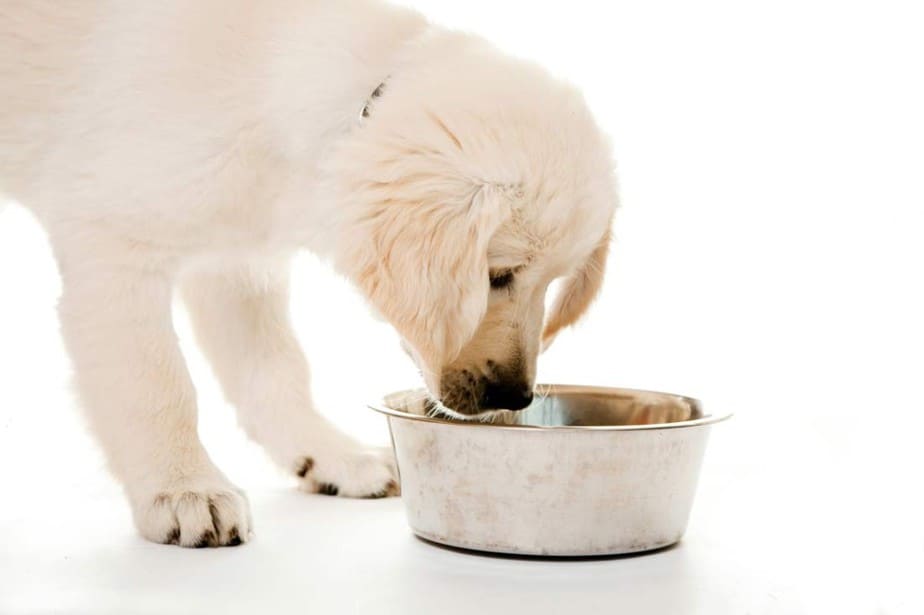
Dental
If your puppy is currently teething, then there could be some discomfort putting them off eating. From the age of 4-6 months your puppy will be getting all their adult teeth in. If your Golden Retriever puppy is in this period then this may be the reason for their loss of appetite.
Consider freezing some chicken broth ice-cubes for them to lick and chew. Also, there are some chew toys on the market that can be frozen or placed in the fridge.
TIP: You can also freeze some strawberries, banana, apple, or carrots.
Also be sure to have an adequate number of puppy chew toys about the house.
Check your puppy’s mouth and look for any problem areas. Do they have an abscess or inflamed gums? Is there a problem with any of their new teeth?
If you see anything like this be sure to take them to their vet as this could be the culprit behind them not eating.
Shots
If your Golden Retriever pup recently had their vaccinations, then they may be feeling a little nauseated. Usually 24-hours after having their shots, they can go off their appetite.
If your puppy has had their shots in the last day or two, then wait for this period to be over before worrying too much about their eating.
Worms
There are five different types of worms that can affect your puppy. Round worms, hook worms, tape worms, whipworms, and heartworms.
Round worms are the most common and Toxocara canis (T. canis) is more prevalent in puppies. These can also be transmitted to humans.
Left untreated, worms can lead to weight loss and in extreme cases, death. They’re not always easy to diagnose either, which is why prevention is the best method to keep your puppy safe from them.
Worms usually will make your puppy hungrier due to stealing the nutrients from within their gastrointestinal system. Sometimes, however, this won’t be the case, and they can affect their appetite causing them to be put off by their food.
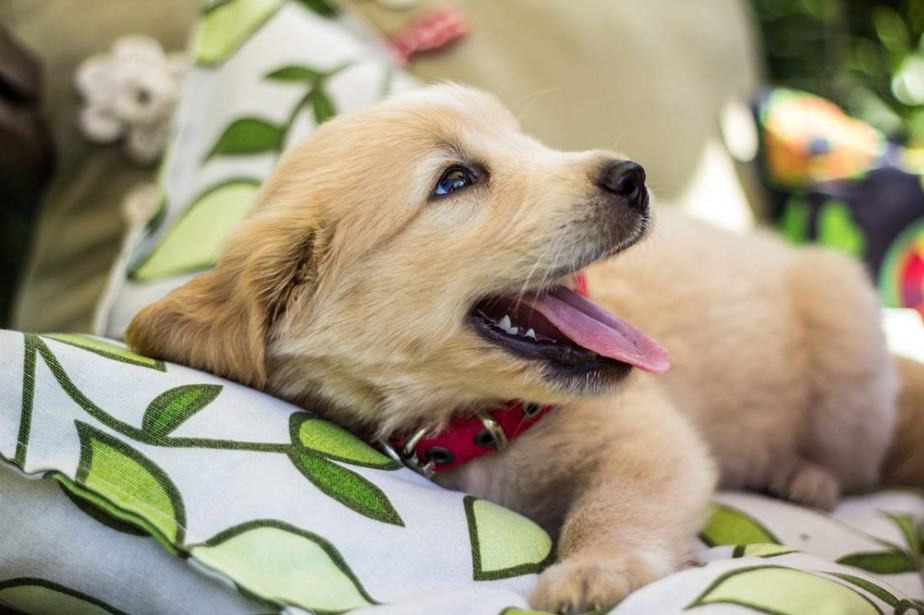
Watch for these symptoms to indicate your puppy has worms:
- Scooting
- Vomiting
- Appetite changes
- Diarrhea
- Distended abdomen
- Weight loss
- Coughing
- Abdominal pain
- Poor coat
- Pot-bellied appearance
- Dehydration
- Anemia
- Blood in stool
If you suspect your Golden Retriever puppy may have worms, then it’s best just to get them to their vet. Different worm infections require different approaches of treatment. Your puppy’s vet can determine the appropriate solution.
As prevention is the best method to keeping worms away, then you should use a recommended de-wormer for your Golden that they take regularly.
We recommend you get your puppy onto a monthly de-worming schedule. Trifexis is a highly recommended de-wormer. Just choose your puppy’s weight below to get them onto a regular schedule:
Trifexis Chewable Tablets for Dogs, 5-10 lbs
Trifexis Chewable Tablets for Dogs, 10.1-20 lbs
Trifexis Chewable Tablets for Dogs, 20.1-40 lbs
Trifexis Chewable Tablets for Dogs, 40.1-60 lbs
Parasites
Coccidiosis and Giardia are both parasites that can cause your puppy to feel sad and sorry for themselves.
These parasites live on the inner wall of your puppy’s intestines, and can be caught through eating dirt, or other contaminants.
The most common symptom is diarrhea, or even blood in the stool. They may also feel nauseated which can affect their appetite.
Be sure to have your vet check for this if you notice their poop is runny. The vet will prescribe an oral antibiotic to kill the parasite.
Gastroenteritis
Gastroenteritis is caused by a bacterial infection or virus, and just like us, when puppies get sick, they can often lose their appetite.
Symptoms can include:
- Vomiting
- Diarrhea
- Lethargy
- Loss of appetite
- Dehydration
- Abdominal pain
If any of these symptoms are accompanying your Golden’s loss of appetite, then you should take them to their vet so they can be diagnosed. The vet will then likely re-hydrate them and prescribe antibiotics.
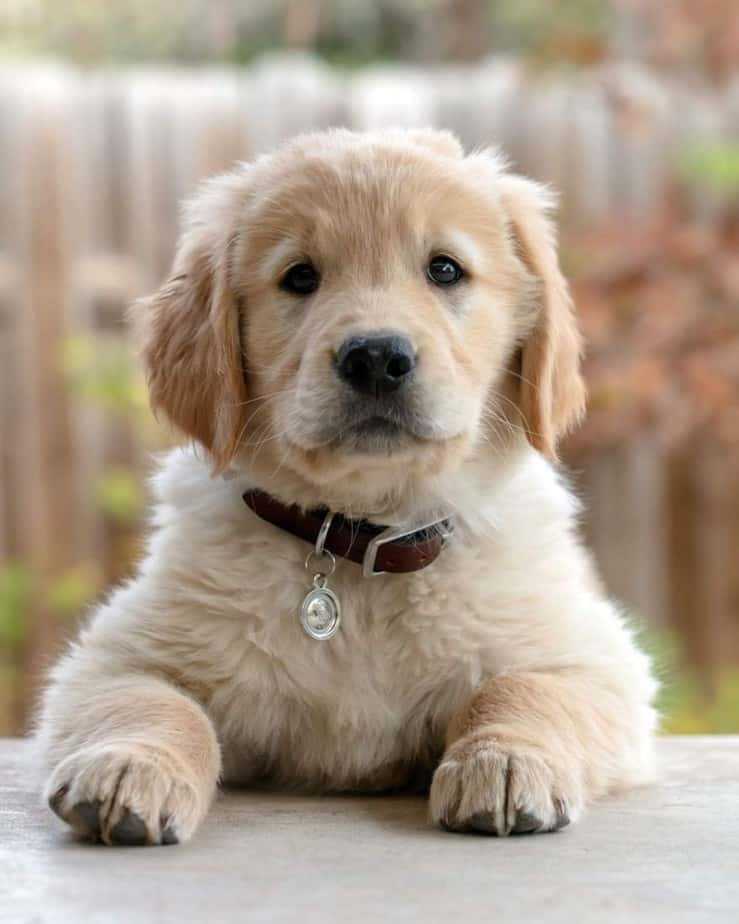
Illnesses
Has your puppy had their vaccinations? Parvovirus is easily passed from dog to dog and attacks puppies aged between 12-weeks and 3-years.
The scary thing is even if your puppy has had their shots, they can still get Parvovirus if they haven’t finished their course or have missed a booster.
If your pup has any of the following symptoms along with their loss of appetite, get them to the vet ASAP.
- Bloody diarrhea
- Lethargy
- Vomiting
- Weight loss
For Distemper, luckily the vaccine is effective after only one or two shots. It’s a nasty illness but if you are diligent with your shots you shouldn’t have to worry.
Distemper will begin to present with cold like symptoms, and progressively get worse until possible brain damage.
Allergies
If your puppy is having an allergic reaction to something, they may be feeling ill and this can affect their appetite. Look for other symptoms, such as:
- Licking lips
- Red lips
- Diarrhea
- Sneezing
- Swelling in facial features such as eyelids
- Chewing feet and other parts of body
- Scratching at their body and ears
- Dryness of skin
- Redness of skin
- Red bumps on skin
- Thickening of skin
- Crusty skin
- Oily skin
If any of the above symptoms are present, then here is a list of possible causes for your puppy’s allergies that you can look at addressing:
- Food
- Parasites such as Mites and Fleas
- Shampoos and Conditioners
- Bacterial Flora
- Yeast Organisms
- Chemicals (e.g. cleaning products)
- Bacterial Hypersensitivity (Normal skin bacteria becomes the allergen)
- Plants in your garden or at the park
- Pollen (seasonal allergies)
TIP: Does your puppy have inflamed lips? If they’re using a plastic bowl to eat from consider changing to a metal bowl, as the plastic can cause an allergy.
To treat allergies, the best thing to do is to remove the allergen from your puppy’s environment.
Start by changing their food, then their shampoo. Is it seasonal and there’s pollen in the air? Are you using harsh cleaning chemicals?
This will be a process of elimination.
High Temperatures
On hot days you may notice your puppy isn’t eating like usual. This is because they’re using less energy as they lay about, and so won’t need as much to eat.
Make sure your puppy is cooled down before offering them their food. You can let them run through a sprinkler or purchase them a cooling mat to lay on.
UTI
Is your puppy licking between their legs? Or are they finding it difficult to urinate? If you see either of these things happening, and you notice your puppy is not eating, then they could have a Urinary Tract Infection.
If you suspect this to be the case then you will need to take your Golden Retriever to the vet.
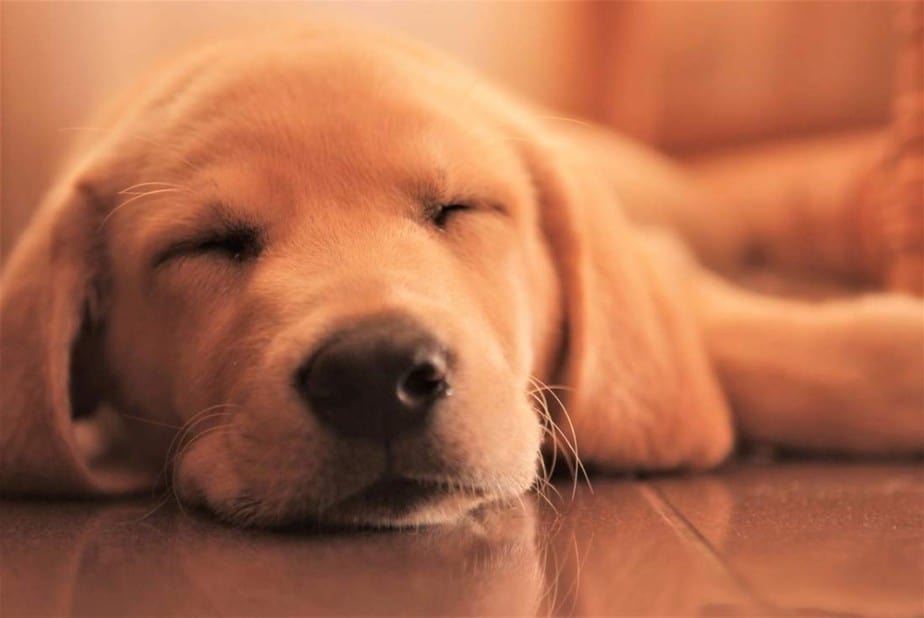
Digestive Obstruction
Has your puppy been eating things they shouldn’t be? If you notice that there are less socks around the house, then it could be your little pup has eaten them.
Puppies can suffer from pica, eating objects that aren’t food. This happens more commonly if you’re leaving your puppy alone and they’re getting anxiety.
If they have separation anxiety, they could eat your socks or knickers because it has your smell on it.
If this is the case, and your puppy isn’t eating, it’s possible they have an obstruction.
You can wait for a day or two to see if it passes on its own, however if it doesn’t, you will need to take them to the vet for scans and possible surgery.
Final Word
Your puppy will go through stages where they eat a lot and other times where they’re taking it slow. This will coincide with their growth spurts.
If your puppy isn’t eating their food, but they’re otherwise healthy, then there’s probably no cause for alarm. If your puppy is hungry enough, they will eat.
If you notice this is happening over a longer period of time though, or they’re even losing weight because of it, then it’s best to seek the advice of a veterinarian.
Are you interested in reading this? Puppy Won’t Eat Kibble? Do This!

